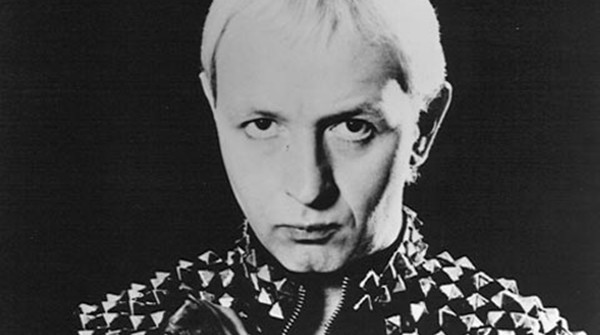Title: Dream Deceivers – Heavy Metal on Trial
Director: David Van Taylor
Running Time: 58 minutes, Not Rated
Special Features: POV’s Simon Kilmurry talks to director David Van Taylor about the film and documentary filmmaking
December 23, 1985 in Sparks Nevada, 20-year-old James Vance and 18-year-old Raymond Belknap shared a 12-guage shotgun to end their lives. They had spend several hours drinking, smoking weed and talking about their favorite band Judas Priest. Raymond was the first to put the barrel under his chin and pull the trigger. James picked up the shotgun, still slippery from Raymond’s blood and put the barrel under his own chin, pulled the trigger – but the gun slipped, horribly disfiguring him. After much speculation by both boys’ parents, they blamed it on the heavy metal music their sons were so passionate of alleged that there must have been a subliminal message in the song “Better By You, Better Than Me” where the words “Do it” possibly encouraged the thoughts suicide. James went along with this explanation. The parents banded to sue the band Judas Priest and CBS records because their music “mesmerized” their sons to take their own lives.
The Good: For its time, it was a thoughtful and engaging documentary; though it was shot in the style of an old-timey AV club video. The moment Raymond Belknap’s horribly reconstructed face appears on screen, I automatically connected the character Arseface from Garth Ennis & Steve Dillon’s Preacher comics. Arseface’s whole origin story was pretty obviously lifted from this case. Some of the fans of Judas Priest were comically douche-y which brought some light to the story. Did they pick up some actors, or are these “fans” so lame they’re kind of cool? Take off those sunglasses Corey Hart. Rob Halford is a badass for not taking the situation seriously, but he’s still a serious musician. Like most level headed people, he thinks the whole blaming a band or a song for the personal choice to end a life is ridiculous. I liked how subtly the film portrays Raymond’s parents as clueless and that they are partly to blame for their child’s decision to want to check out.
The Bad: I wanted to see an addendum to the story, like the Paradise Lost trilogy. They didn’t cover much of Raymond’s aftermath. He apparently had a child before he attempted suicide, and his subsequent death years after the suicide attempt was thought to have also been premeditated. The documentary kind of glossed over the part where Raymond says he didn’t really want to kill himself. I wanted them to dig a little bit deeper. Did he do it because his friend did it, or because he didn’t want to get into trouble for his friends death? Was he so weak that he couldn’t face life without is friend?
This documentary as a whole is very sad, but also will open some parents eyes about their parenting style – or lack therof. Whenever your kid does something utterly stupid, you can’t blame an inanimate object because you think it’s too hard to communicate with your children. Show this film to some emo-poseur-goth kids; they’ll flip the script almost overnight. Raymond said he didn’t want to kill himself, but he felt compelled to anyway. Once his parents started paying attention to him, he went along with what they were saying because he had nothing and nobody left. He had to live with his bad decision by eating with his finger and pressing it against a tooth in order to chew. Hey kids, your life really isn’t as bad as you’re making it out to be because at least you’re not this guy.
Total Rating: A
Reviewed by: JM Willis

